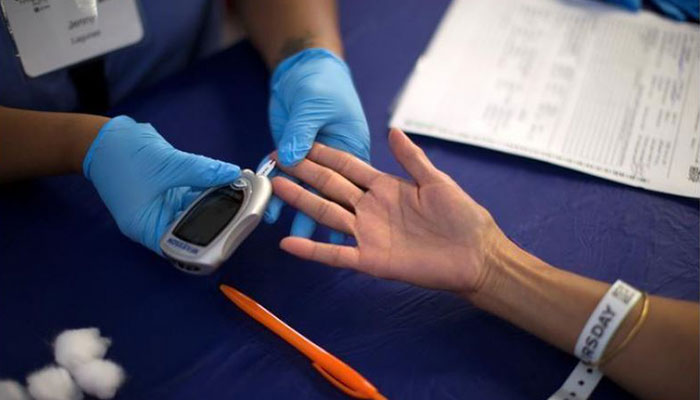Smaller social network tied to bigger diabetes risk
Loneliness has long been linked to a wide variety of physical and mental health problems
January 11, 2018

Socially isolated people may be more likely to develop diabetes than adults with closer ties to family and friends, a recent study suggests.
Loneliness has long been linked to a wide variety of physical and mental health problems, particularly among chronically ill and elderly people. With diabetes in particular, close friends and family can influence how patients eat, how much they exercise, and how well they keep the disease in check.
To see how these relationships may influence the odds of getting diabetes in the first place, researchers examined data on 2,861 adults who ranged in age from 40 to 75 and were 60 years old on average.
More than half of these people had normal blood sugar and no diagnosis of diabetes. But 430 people, or 15 percent, had slightly elevated blood sugar classified as “pre-diabetes,” while about 4 percent were newly diagnosed with diabetes when they joined the study and 24 percent already had the disease.
On average, people without diabetes had 11 friends and family members in their social network, compared with fewer than 8 friends for people with newly or previously diagnosed diabetes, researchers report in BMC Public Health.
“Currently, high-risk groups receive advice to become more physically active and eat healthier without any inquiries about their social situation,” said lead study author Stephanie Brinkhues, a researcher at Maastricht University in the Netherlands.
“We think that this could be improved . . . as socially isolated people may even have a higher risk for disease,” Brinkhues said by email.
Every one-person reduction in the size of people’s social networks was associated with 12 percent higher odds of newly diagnosed diabetes in women and 10 percent higher odds for men, the study found. This was also tied to 8 percent greater likelihood of a previous diabetes diagnosis in women, and 5 percent greater odds for men.
At the same time, each 10 percent drop in the number of social network members living within walking distance was associated with 21 percent higher odds of a new diabetes diagnosis for women.
Every 10 percent increase in the proportion of the social network made of household members, meanwhile, was associated with 25 percent higher odds of a new diabetes diagnosis in women and 29 percent higher odds for men.
Living alone didn’t appear to influence the odds of diabetes for women. But for men, living alone was associated with 84 percent higher odds of a new diabetes diagnosis and 94 percent higher odds of a previous diagnosis.
The study wasn’t a controlled experiment designed to prove whether or how the number of people in social networks or the types of interactions within networks might influence the risk of diabetes.
Even so, the study adds to the evidence linking social isolation to diabetes and other chronic illnesses that can impact both quality of life and longevity, said Dr. Carla Perissinotto, a geriatrics researcher at the University of California, San Francisco.
“Social isolation doesn’t cause diabetes, but there is a relationship,” Perissinotto, who wasn’t involved in the study, said by email.
One theory is that too much time alone might lead to increased stress and inflammatory reactions in the body, Perissinotto added. Stress hormones are thought to influence how the body processes glucose, or sugars, and may contribute to the development of diabetes.
The study results offer fresh evidence of the importance of maintaining an active social life in middle age and beyond, said Dawn C. Carr, a researcher at Florida State University in Tallahassee who wasn’t involved in the study.
People who have many close relationships with friends and family members may be more motivated to be socially engaged, physically active and follow a healthy lifestyle, Carr said by email.
By contrast, people who live alone may have less motivation to cook healthy meals, get out and exercise or do other things that can keep health problems at bay.
“We need to nurture important relationships and be sure that we take our social health as seriously as our physical and psychological health,” Carr advised. “This is something we need to cultivate throughout our lives before we reach old age.”









